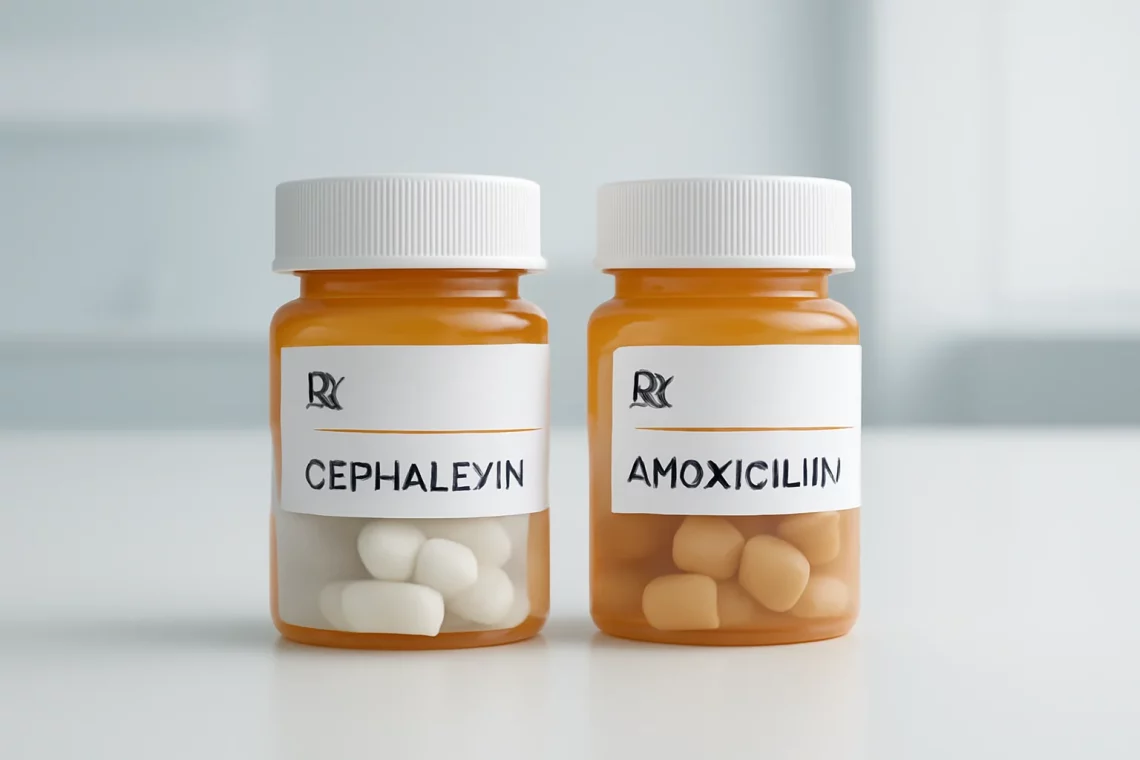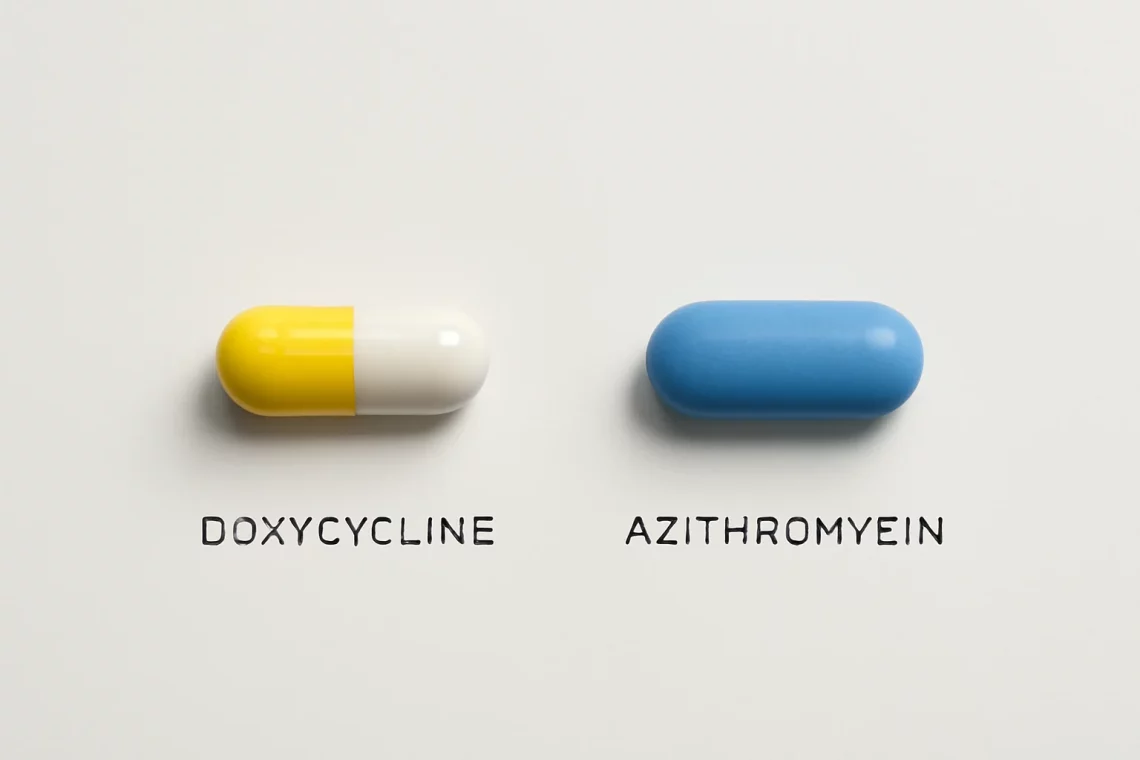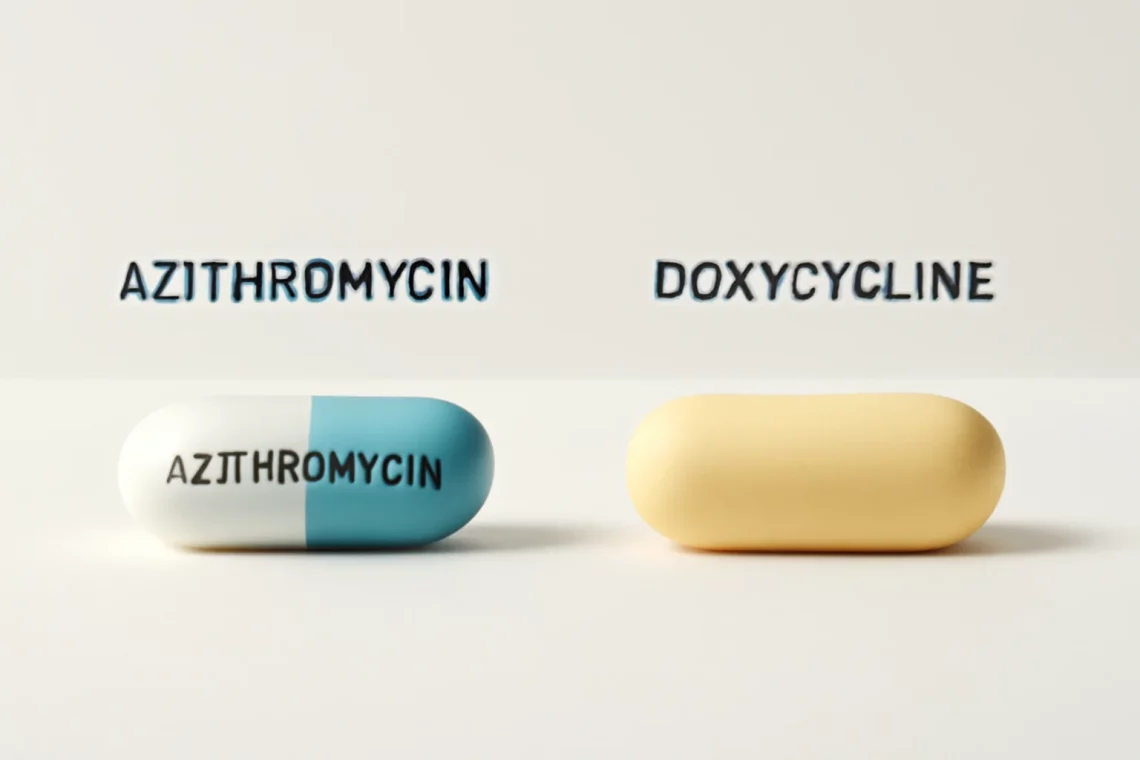-
Cephalexin or Amoxicillin Which Antibiotic is Right for You
The use of antibiotics has become a cornerstone in modern medicine, providing effective treatment options for a variety of bacterial infections. Among the numerous antibiotics available, Cephalexin and Amoxicillin are two commonly prescribed medications. Both belong to the broader class of beta-lactam antibiotics, but they each have unique properties, indications, and mechanisms of action that can influence their effectiveness depending on the specific infection being treated. The choice between Cephalexin and Amoxicillin can be crucial in ensuring optimal patient outcomes while minimizing the risk of antibiotic resistance—a growing concern in the medical community. Understanding the differences between these two antibiotics, including their spectrum of activity, side effects, and potential interactions,…
-
Doxycycline vs Azithromycin: Which Antibiotic Is Right for You?
Doxycycline and Azithromycin are two widely used antibiotics that play significant roles in the treatment of various bacterial infections. Both medications belong to different classes and have unique mechanisms of action, which influence their effectiveness against specific types of bacteria. Understanding the differences and similarities between these two antibiotics can be crucial for healthcare professionals when prescribing treatment options and for patients seeking to understand their medications better. Doxycycline, a tetracycline antibiotic, is known for its broad-spectrum activity against various gram-positive and gram-negative bacteria. It is commonly used to treat infections such as pneumonia, acne, and certain sexually transmitted infections. Azithromycin, on the other hand, is a macrolide antibiotic that…
-
Clonazepam vs Librium: Key Differences and Uses Explained
Clonazepam and Librium are two medications that are commonly used to treat anxiety and other related disorders. Both belong to the class of drugs known as benzodiazepines, which work by affecting the central nervous system to produce a calming effect. Due to their similar classifications, many individuals often find themselves comparing these two medications when seeking relief from anxiety, panic disorders, or other conditions that require sedative effects. Understanding the nuances between Clonazepam and Librium can aid in making informed decisions about treatment options. Factors such as potency, duration of action, side effects, and the specific conditions each medication is prescribed for play a critical role in differentiating these drugs.…
-
Azithromycin vs Doxycycline: Which Antibiotic Is Right for You?
-
Can You Safely Take Gabapentin and Tramadol Together?
Gabapentin and tramadol are two medications that are commonly prescribed for pain management and neurological conditions. Gabapentin is primarily used to treat nerve pain and seizures, while tramadol is an opioid pain reliever that helps alleviate moderate to severe pain. The interaction of these two medications raises questions about their combined use, particularly regarding safety and efficacy. Patients often seek relief from chronic pain, and healthcare providers may consider prescribing both medications to enhance pain management strategies. However, the potential for interactions and side effects necessitates a careful evaluation. Understanding how these drugs work individually and together is crucial for anyone considering this combination. The complexities of pain management, the…
-
Can I Take Gabapentin with Tramadol Safely and Effectively?
The use of prescription medications has become increasingly common, particularly for managing chronic pain and neurological conditions. Among these medications, Gabapentin and Tramadol are frequently prescribed for their respective therapeutic effects. Gabapentin is primarily used to treat nerve pain and seizures, while Tramadol serves as a pain reliever for moderate to moderately severe pain. As patients may often find themselves on multiple medications, the question arises: can Gabapentin and Tramadol be taken together? Combining medications can sometimes enhance efficacy, but it can also lead to increased risks and side effects. Understanding their individual mechanisms, potential interactions, and how they may affect your overall health is essential before making any changes…























